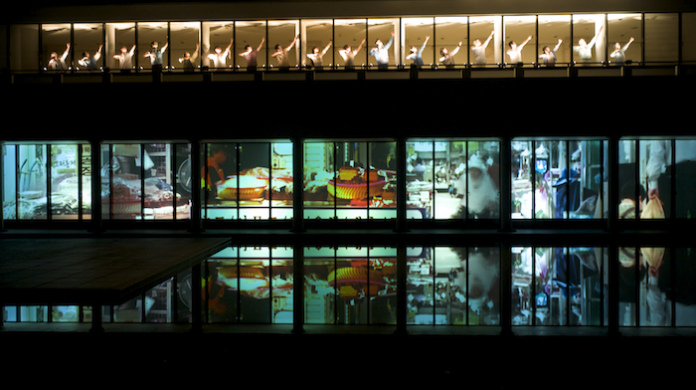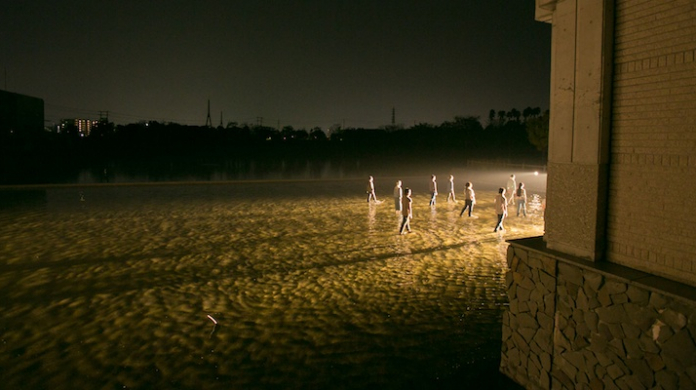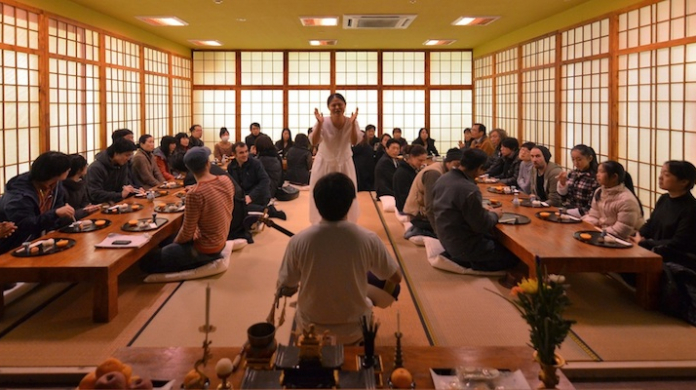When Tristan Sharps from dreamthinkspeak first went to South Korea, he had an open mind. The topic for his next show soon became apparent, however, and he has since spent time in South Korea and Japan developing One Day, Maybe in response to the people's uprising of May 1980.
The subject chose itself
ONE DAY, MAYBE started when I was invited to Gwangju to create a new piece of work. Although I was free to choose the subject of this work, it became clear during my first visit in 2011 that the subject had chosen itself: the events of May 1980 – when the people of Gwangju who demonstrated in the name of democracy were killed by paratroopers in the name of the government – are a key part of South Korea’s history. However, I would never presume to be an expert on the subject of May 1980. My interest is in exploring the world we live in now through the lens of those tragic events.
"My interest is in exploring the world we live in now through the lens of those tragic events"
What if those people who died in 1980 could return as spirits from the dead and step into the shoes of people alive today? What would they make of the world we now live in? Surely they would see a world where liberty and democracy have spread rapidly across a range of countries. Or would they? Over the past two years, I have had the privilege of spending a lot of time exploring Gwangju and South Korea. It has been an incredibly rich journey. Everything that I have seen and experienced has had a direct impact on the production: the extraordinary and vibrant Yangdon Market; the eerie and abandoned police station, one of the former provincial government buildings at the heart of the May 1980 uprising; the nearby gymnasium where the bodies of the dead were laid out; the beautiful and unspoiled countryside of the Jeonnam province; the thanksgiving Jesa I was invited to in Seoul that taught me the importance of ancestry in Korean culture; above all, the old cemetery that lies behind the May 18 National Cemetery, where some of those who died in 1980 were originally buried.
There is also the modern, dynamic and rapidly-developing Gwangju, fueled by globalisation and the need to compete in the global market place: the profusion of western brands; the vast array of café chains; the overwhelming number of clothes shops; the PC Bangs; the bright neon-lit shopping precincts; the music blasting out from shop fronts. All of which melts into a homogeneous landscape of sound and light. We could be in any downtown shopping district anywhere in the world – pulsating and exciting – but where all shops are essentially the same, just with different branding.
"...a unique and ambitious collaboration between different cultures and partners"
Above all, the thing that has made the most impression on me has been the remarkable bravery of the people who gave their lives in 1980 for what they believed in. This production aims to honour those people and all others around the world who have risked their lives for their beliefs. The production will be re-created in the Japanese cities of our collaborating partners in Kochi and Kanazawa. My travels through Japan have been equally rich and rewarding, with the same key themes equally relevant.
This whole project has been dependent on the many talented artists and technicians from both countries who have worked tirelessly to create the production here in Gwangju, and who will continue the journey in Japan. We’d like to thank everyone who has devoted their time and energy in producing this work over the past two years. It has been a unique and ambitious collaboration between different cultures and partners and we are looking forward to the journey continuing in the future.
dreamthinkspeak went to South Korea supported by the British Council. The resulting show, One Day, Maybe, will also be developed and performed in Japan. You can follow @dreamthinkspeak and @UKTheatreDance on Twitter to find out more.


